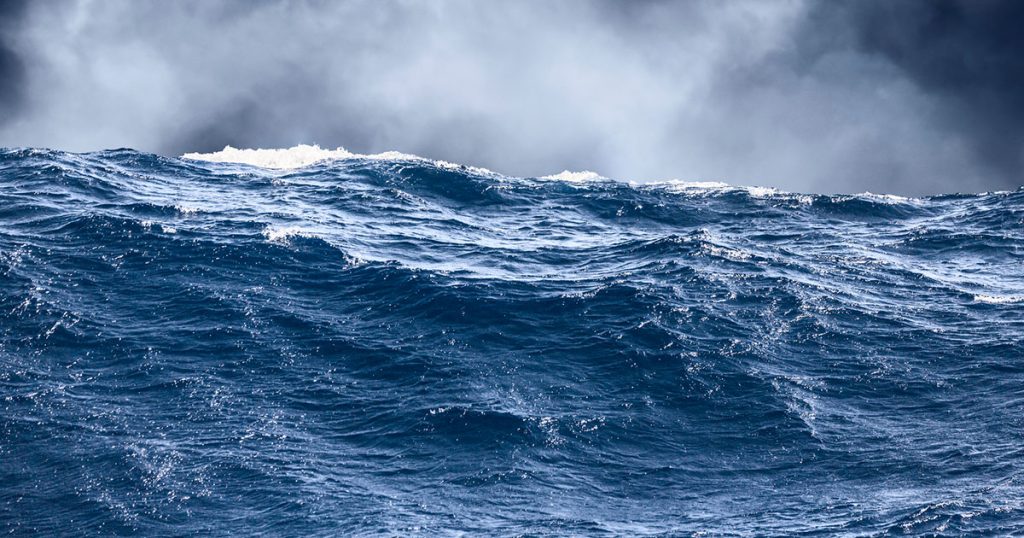As an ongoing commitment to support the UN SDG’s (Sustainable Development Goals), Ocean Specialists Inc. (OSI) participated in UNESCAP’s (Economic and Social Commission for Asia and the Pacific) Tsunami Steering Committee Meeting held virtually on May 13, 2020.
Ms. Mia Mikic, the Director for Trade Investment and Innovation from the UNESCAP Secretariat, kicked off the meeting led by Mr. Eric Roeder, Economic Officer and focal point for Disaster Risk Reduction. Ms. Mikic’s outlook was very positive for the progress being made in light of the COVID-19 Pandemic. She was impressed by the number of participants in the virtual meeting and the outcomes from the first meeting in Singapore, in 2019.
There were 26 participants from around the world that discussed the latest developments in the three major modalities covered during the kick-off meeting in Singapore last year. These modalities, which will assist in the overall early warning program to reduce Tsunami disasters, include the following:
- Oil Platforms
- Ships at Sea
- SMART Subsea Cables (Joint Task Force (JTF) with Steve Lentz of OSI as a working member)
Each participant in the roundtable discussed new developments in each of the respective areas.
In the Subsea domain, the members discussed the Joint Task Force’s efforts on SMART Cables projects which has been in development for 10 years trying to engage submarine cable developers to install repeaters which have capabilities to detect and warn communities of seismic anomalies on the ocean floor, that could become Tsunamis. The more early-warning capacity is available to Emergency and Disaster Agencies, the more chances there are to save lives and improve outcomes. There are several demonstration projects underway and under consideration from Portugal to Italy and New Caledonia, with a longer-term plan to support Indonesia with Ocean observing technology. Dr. Bruce Howe who has been leading the JTF for over 10 years, believes that progress has been steadily improving and new developments in Distributed Acoustic Sensing (DAS) holds out new opportunities for improving early warning techniques in Submarine systems. The COVID-19 Pandemic has probably elongated the project work but has not stopped the effort to implement new techniques and improvements.
SubOptic representatives spoke about regulatory requirements which will need to be addressed for using DAS or other Ocean observing technologies across national EEZ borders. The regulatory community will need to commit to a new understanding of the impacts of ocean observing capabilities as a benefit to humanity. The concern for state sponsored intelligence gathering continues to be a factor in cross border implementations.
A project which provided some interesting outcomes in the DAS space has been the FINESSE project in the EU with the research written up in Nature Communications.
The Oil and Gas sector has made significant progress in addressing the equipment needed to augment and transmit the capabilities that exist on each platform. Each platform has the ability to detect variation in wave types and could be used to support Tsunami early warning efforts during seismic events. This was considered low hanging fruit, due to the location of platforms within the EEZ of operating nations, and the effort is being pursued vigorously.
Finally, in the shipboard area, there are a number of trials being conducted by the University of Hawaii, Swire, and Maersk Shipping lines. While Swire and Maersk have offered shipboard use for the trials, UofH are reviewing applications and cross border considerations. The program is slightly behind schedule as the lead researcher for this project has relocated from HI to Germany.
OSI is proud to participate in the development of systems which can provide countries with capabilities to respond effectively during natural disasters and other crisis situations. The next virtual meeting will be held in July followed by a face-to-face meeting in Jakarta, in December 2020.
Read part 2 of the SMART Subsea Cables discussion: The Deep Legal Implications of SMART Cables
